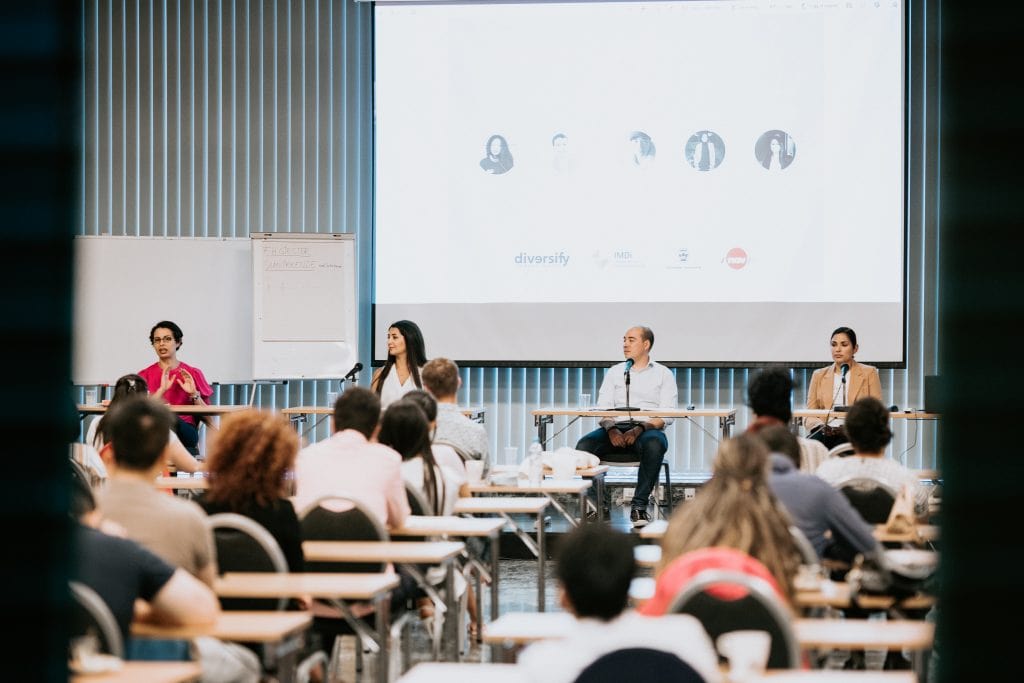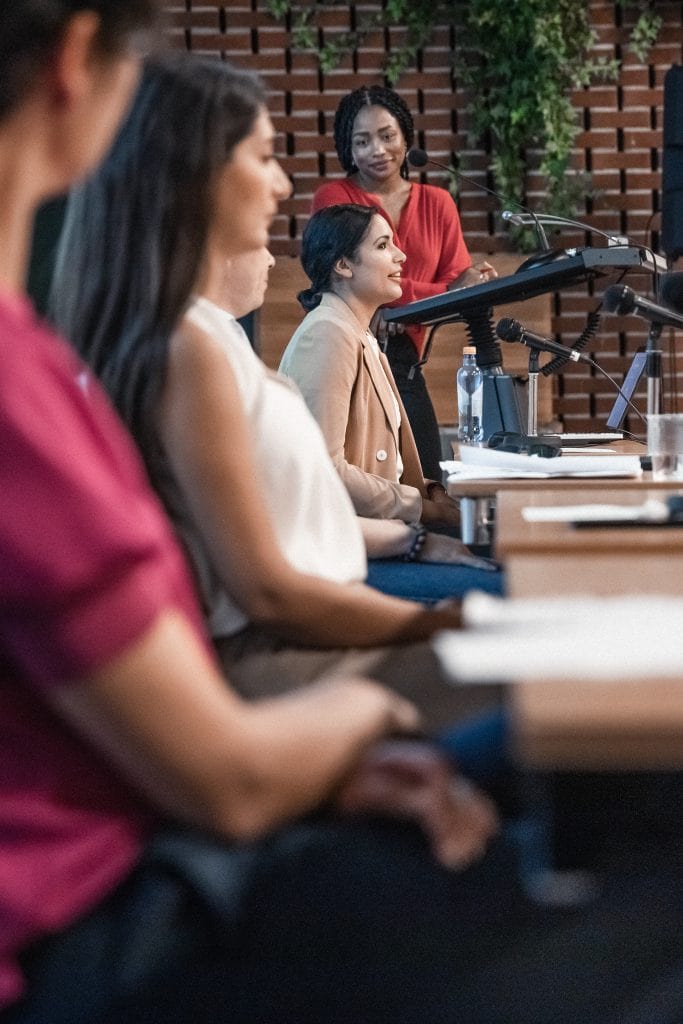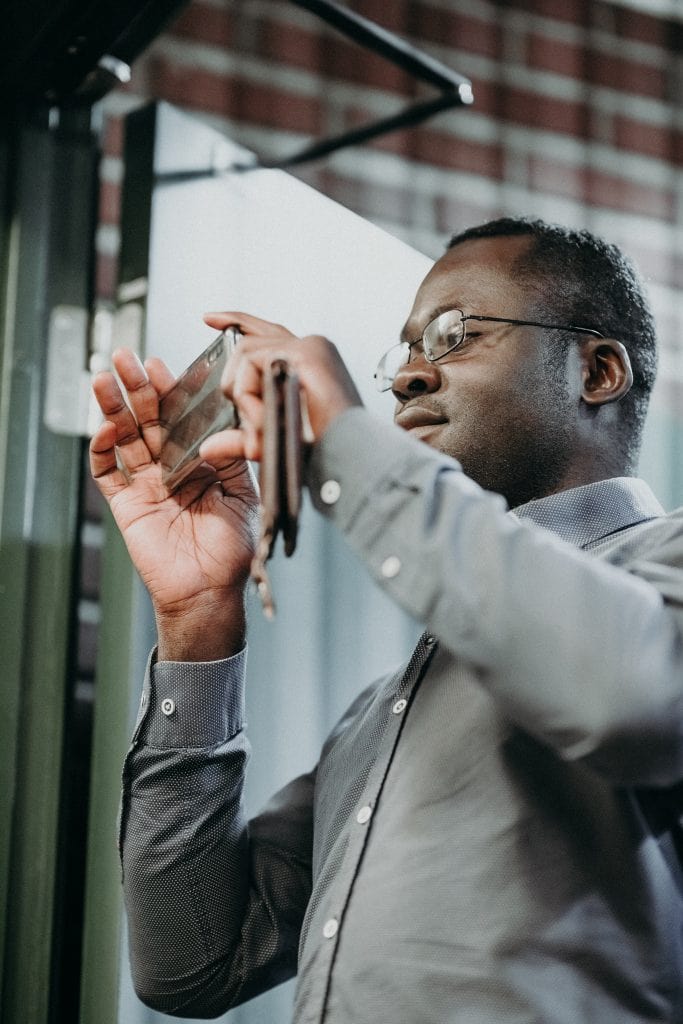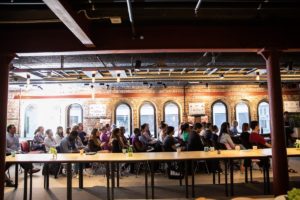Tone Indrelid, Outpost Focal Point at Norske Shell, Norwegian teacher at Learn Norwegian Today and intercultural trainer at Tone Indrelid Consulting, reflects on Diversify’s recent panel debate ‘Stavanger Panel Discussion: Job Creation for and by Immigrants and Internationals’.
I felt a little nervous attending Diversify’s Springboard Stavanger event last month. For the first time in 15 years, I walked into a room full of internationals; immigrants; expats; global nomads; utlendinger – the labels are many – feeling like an outsider.
‘I’m no longer one of them, I’m not sure I really belong here – I feel awkward!’ I thought, taking a seat at the back of the room. You know, for easy access to the door. Surely, we’ve all sat next to the exit at some point in our foreignness.
I didn’t leave, though. I may have repatriated to Norway and I may have felt separate from everyone else in that room, but only for about 3 minutes. That’s how it took me to remember a wise friend’s advice to always start with similarities. Start with what we share, sort out our differences, and move back to similarities. That way, we can create something together.
Listening to the panelists, I note what we share. Our global experience, our global mindset. A willingness to adapt. Flexibility and grit. Entrepreneurialism.
We also share an understanding of what some of the pain points are for skilled global nomads in Norway:
- Information: ‘You can’t get information from anyone,’ one panelist stated, and I nodded. The first time I heard this, I didn’t understand. Norway is one of the most transparent countries I’ve ever lived in and everything is available online – from visa application processes through information from public offices to job listings and CV advise. It wasn’t until I needed that information in English that I realized some of it only exists in Norwegian.
- Language skills: Norwegian opens doors. It is key to accessing information, to integration and, unless you arrived on a short-term international assignment and work in an English-speaking environment, to securing employment. Learning Norwegian as an additional language can, however, be challenging. Many say they struggle to prioritize time and money short term, to plan for a long-term outcome. I think planning is key – plan what arenas of your life you need Norwegian for, and how this new language combines with whatever other languages you speak. Being multilingual means, you have many legs to stand on.
- Cultural skills: How to network? How to present oneself? How to highlight expertise and experience? What to expect from a meeting? Different cultural environments, be it countries, companies or sports clubs, have different cultural codes – more or less formal rules for accepted and familiar behavior. Learning to understand those codes can help us communicate and interact in a more efficient way.
I’m super thankful to Diversify for bringing Springboard to Stavanger. Our little city prides itself on being international, but perhaps we could do a better job at supporting our internationals? There is, I think, most definitely a need for a community where we can share experience and information, and create development, together.






